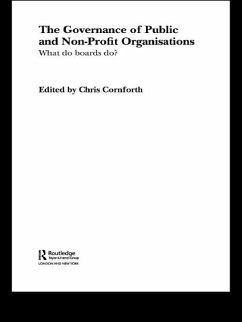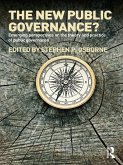Such concerns have stimulated a renewed interest in organizational governance, and a growing literature on the subject. Much of the current literature, however, has been criticized for underestimating the constraints and conflictions demands that boards face and recommending unrealistic solutions. There have been relatively few detailed empirical studies of what boards do in practice. This book fills that gap by bringing together analyses based upon some of the best recent empirical studies of public and non-profit governance in the UK.
Using a new theoretical framework that highlights the paradoxical nature of governance the book throws light on the questions at the heart of recent debates about nonprofit boards:
* Are boards publicly accountable or is there a democratic deficit?
* Are boards able to exercise real power, or does management run the show?
* What do boards do? Are they effective stewards of an organization's resources? Can they play a meaningful role in setting organisational strategy?
* What effect are regulatory and other changes designed to improve board effectiveness having?
The book will be essential reading for academics and students with an interest in the governance and management of public and nonprofit organizations. It will also be of value to policy-makers and practitioners who wish to gain a deeper understanding of how boards work and what can bedone to improve their performance.
Dieser Download kann aus rechtlichen Gründen nur mit Rechnungsadresse in A, B, BG, CY, CZ, D, DK, EW, E, FIN, F, GR, HR, H, IRL, I, LT, L, LR, M, NL, PL, P, R, S, SLO, SK ausgeliefert werden.









